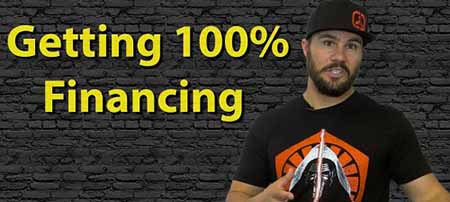For most newer real estate entrepreneurs, raising capital seems like a daunting task. They believe it requires a substantial down payment and impeccable credit to qualify for funding on deals. While that can certainly be true with traditional bank financing, there are other forms of capital that are much easier to acquire, assuming certain things align (more on that later).
There are plenty of “no-money” strategies for doing deals that don’t require you to have capital or credit. In fact, I have closed serval profitable deals using 100% financing and happy to teach investors how to make money without cash or credit. These strategies are great especially when you first get started, however, at some point in order to do more deals, make more money and build a sustainable real estate business, it becomes critical that you learn how to raise money for deals. Certain strategies like spec building new construction or fixing and flipping houses are impossible to do without having access to capital.
In this real esate investing article, I’d like to share with you how to do deals with 100% financing regardless of your credit or experience. This may be the most important real estate investing article you ever read, so pay close attention.
The way that I fund deals with 100% financing is by using a combination of hard money and private money. Let me explain…

Step 1: Hard Money:
Most real estate investors are familiar with “hard money” lenders. These are typically institutions that have raised capital in a fund for the purpose of doing short-term investment loans. Often referred to as “asset lenders,” they are more interested in the property (asset) for protection, then the borrower (credit). Smart hard money-lenders will make sure that the property they’re lending on has a strong equity position, meaning they will lend 65-70% of the value. In the event the borrower defaults on the loan, they have enough equity to be made whole.
The trade-off for not requiring good credit is a higher cost to borrow the money. Hard money-lenders typically charge anywhere from 10% to 18% (or more!). Not all hard money lenders are created equal. Some will lend on just the purchase of a property, some will include renovation funds, and some will even lend 100% of purchase and repair costs, however, the reality is most hard money lenders require that the borrower have some “skin in the game” (down payment) of 10-20%. Like all lenders, the more you put down the better the rate and terms. If you’re willing to come up with 20% down then you should be able to get a reasonable hard money lender with fees between 10-12%. So what about the other 20%? That’s where private money comes in.
Step 2: Private Money:
Private money is different from hard money in that instead of the money coming from a pooled investment fund, the money is an individual’s personal money. It can come from his/her saving, retirement (401/IRA) or other investment funds. There are people everywhere who are looking for a safer, more secure investment vehicle than the stock market. By offering them 8-12% returns secured by real estate, you can raise private money to fund the other 20% not covered by hard money.
Step 3: Raising Capital:
So where do you find hard money and private money lenders? Fortunately, they are in every market but like anything, your job is to find them. Since I’ve been building a multi-million dollar real estate business for many years, I’ve been able to build a huge list of nationwide hard money lenders as well as create several tools for raising private money that have allowed me to do almost all of my deals with 100% financing.




We love your feedback and welcome your comments.
Please post below: